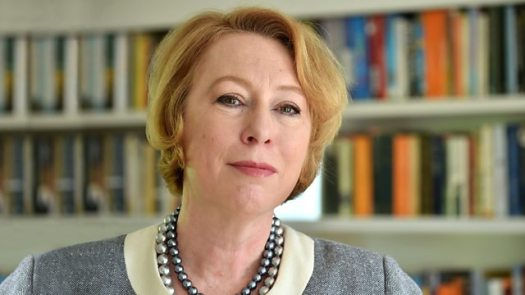How truth and reconciliation processes can help boards, nations and families
- Ciaran Fenton
- Jul 9, 2018
- 3 min read

I briefly met Nelson Mandela and F W De Klerk at The World Economic Forum Africa Summit in Cape Town in 1994 when I was Commercial Director of Financial Times Television, a division of Pearson, which had a relationship with WEF, and was at that time negotiating a deal to stream daily business television news programming to South Africa.
Some years later at a Co-Operation Ireland charity dinner in London, I sat at a table next to one at which Martin McGuinness and Peter Robinson were seated side by side. I'm a junior member of that peace building charity.
Now, when working with boards, I always mention these two occasions because they had a profound emotional impact on me. They illustrated how the unthinkable could happen in human relationships.
I say to boards: if Messrs. Mandela, De Klerk, McGuinness and Robinson (and previously, Rev. Paisley) can find common ground, so can you. Such comparisons are not over the top because I frequently witness conflict on boards which causes deep pain, illness from stress and which, in extremis, can ruin lives because of the board decisions which impact those lives.
We need peace on our boards if we are to build better futures because they are the engine rooms of growth, prosperity and more fulfilling working lives for all, or the opposite.
So what can boards learn from the truth & reconciliation process in South Africa and the peace process in Northern Ireland?
The South African Truth and Reconciliation Commission (TRC) was set up by the Government of National Unity in 1995 to help deal with what happened under apartheid. The conflict resulted in violence and human rights abuses from all sides. Bishop Desmond Tutu led the Commission.
The truth function of any TRC is "truth-seeking" and the reconciliation function is about leaning towards "restorative" rather than "retributive" justice. In boardroom parlance, this is means "fixing not finger pointing".
The peace process in Northern Ireland was not a truth and reconciliation process but a tortuous deal making process by the peacemakers. These were led by Senator George Mitchell who, in his memoir The Negotiator, described patience as a "muscle" which he developed over time. His and the efforts of many others led to The Good Friday Agreement of 1998.
Although the TRC process in South Africa and the peace process in Northern Ireland both delivered positive outcomes, both were nevertheless criticised for failures to address issues by one side or the other. They indeed were not perfect solutions.
However, the common thread in all conflicts whether in South Africa, Northern Ireland, on boards, between nations or between family members is that all human behaviour in conflict situations sits on precisely the same behavioural spectrum, even if the contexts are vastly different.
How is this useful to us? It's useful because we can learn from these extreme situations which processes worked and which didn't and we can use these in less extreme but for us, nevertheless tricky circumstances.
My view is that truth & reconciliation processes are the way forward - on boards, between nations and in families. It's tough to "reconcile" without first having an opportunity to be heard.
Equally, it's futile to have truth heard without that process forming the bedrock of a method for reconciliation.
Reconciliation is impossible without forgiveness. However, forgiveness cannot be demanded. It must be proffered. Moreover, people must be "ready" to forgive.
Ultimately, if our boards, nations and families were more forgiving and less shaming of their members, we would progress better faster. All we have to do is to set up the truth and reconciliation processes and develop the "patience muscles" to allow them to work.
The alternative is unthinkable.





Comments